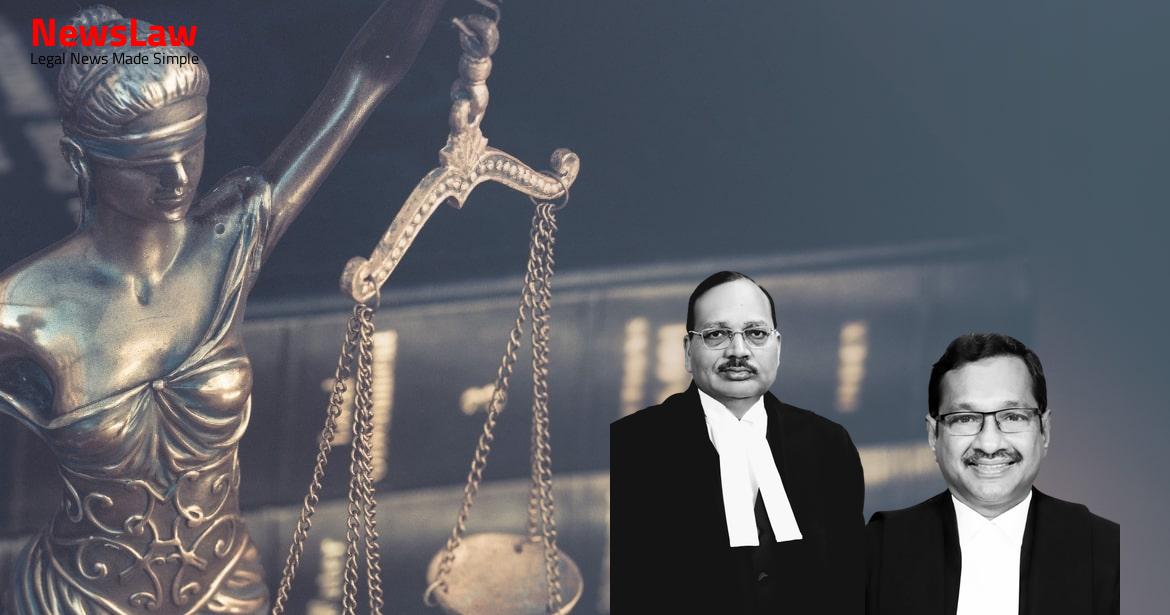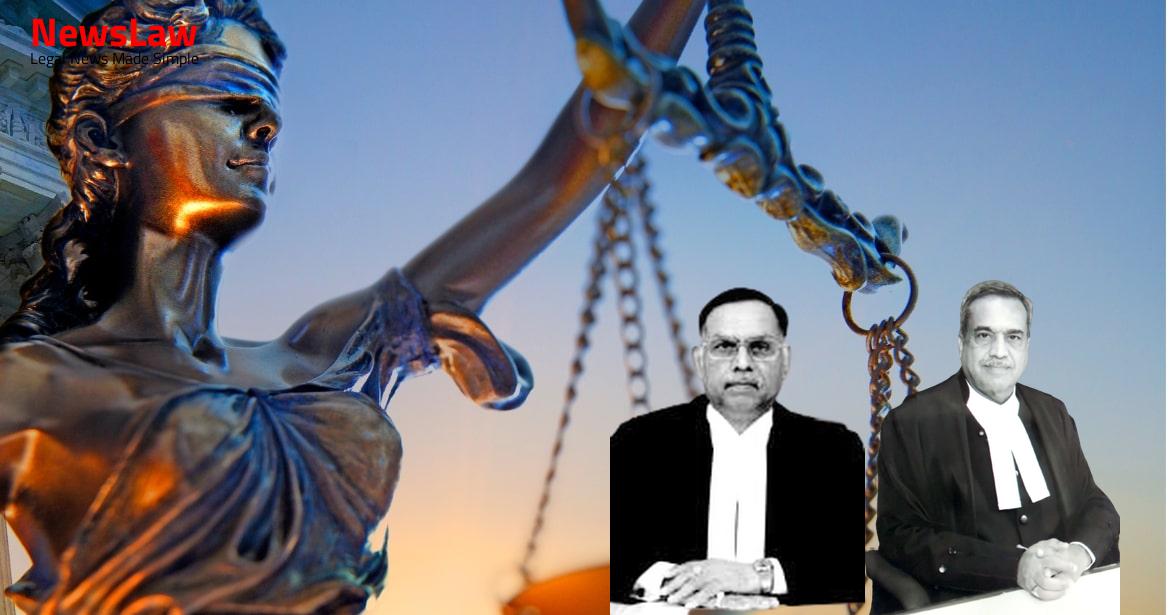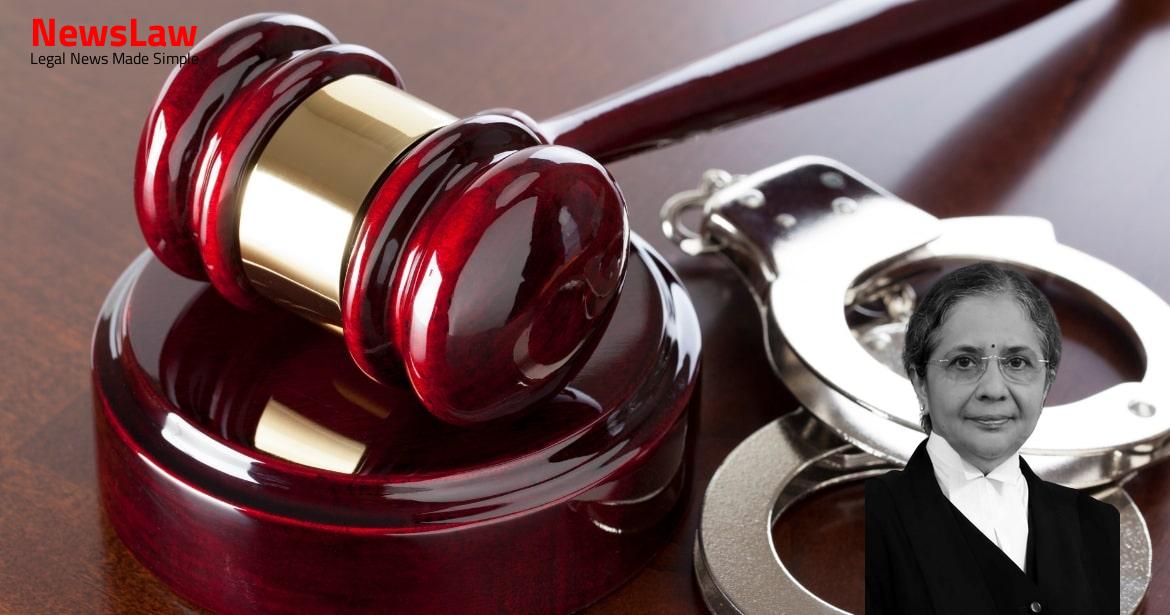Delve into a detailed analysis of a legal case focusing on the burden of proof in a recovery matter. The court’s thorough examination of evidence and the application of legal principles regarding the shift in burden of proof provide valuable insights into civil law proceedings. Stay tuned to unravel the complexities of legal analysis in this intriguing case.
Facts
- The Custodian filed Miscellaneous Application No 193 of 93 in the Special Court for the recovery of sums of money from respondent No 2-Pallav Sheth.
- Various sections of the Special Court (Trial of Offences relating to transactions in Securities) Act, 1992 were invoked.
- The appellants, Suman L. Shah and Laxmichand Shah, were directed to deposit amounts with the Custodian.
- Civil Appeals were dismissed initially due to non-compliance but later restored upon deposit of Rs. 2.20 crores.
- The Special Court orders included directing the appellants to pay specified sums with interest to the Custodian.
Also Read: Presumption of Genuine Endorsements in Cheque Case
Arguments
- Learned counsel for the appellants contended that the Special Court made errors in facts and law regarding the appellants being garnishees of respondent No 2-Pallav Sheth.
- Questionable transactions between the appellants and respondent Nos. 6, 7, and 8 were old, without documentary proof provided by the Custodian.
- Appellants had taken loans before respondent No 2-Pallav Sheth was notified, shifting burden of proof to Custodian.
- Custodian did not provide evidence regarding the repayment of loans from respondent Nos. 6, 7, and 8.
- Cross-examination by Custodian did not unsettle appellants’ assertion of loan repayment.
- Letter from Income Tax Department was not exhibited in the proceedings, yet relied upon by the Special Court.
- Appellants were not cross-examined by respondent No 2-Pallav Sheth or the benami companies, casting doubt on the unpaid amounts.
- Appellants, not being notified under the Act of 1992, should not have had the burden of proof shifted to them by the Custodian.
- Special Court’s observation regarding recovery of properties and assets of respondent No.1 by the Official Assignee was referred to.
- The appellants claimed in their affidavits that the amount borrowed from respondent Nos. 6, 7, and 8 was repaid by way of adjustment towards material supplied, but this was not supported by tangible proof.
- The Special Court rightly discarded the appellants’ statements as they lacked tangible proof, either oral or documentary.
- The appellants, claiming to be reputed businessmen, should have maintained accounts to substantiate their claim of repayment by way of material adjustment.
- The Court was urged to affirm the judgments and dismiss the appeals by the respondents’ counsel.
Also Read: Medical Negligence and Compensation: A Landmark Decision
Analysis
- The official from the Income Tax Department was not examined as a witness in support of the recovery application.
- The appellants claimed to have repaid the amounts borrowed from respondent Nos. 6, 7 and 8 but lacked access to the account books due to the lapse of time.
- It was noted that respondent No.8 did not produce any passbook or documents to substantiate payments made by cheque or adjustments against dues.
- The Custodian had the burden of proving the debt existed before the onus could shift to the appellants.
- The Special Court lacked concrete evidence from the Income Tax Department regarding outstanding dues of respondent Nos. 6, 7, and 8.
- Respondent No.8 chose not to produce best evidence in the form of documentary evidence and relied solely on oral testimony.
- The miscellaneous applications for recovery were filed by the Custodian in 2008, seeking amounts from the appellants towards the dues of respondent Nos. 6, 7, and 8.
- Various discrepancies and lack of proper evidence were highlighted in the case, with essential documents not being produced or traceable.
- The case revolved around a communication from the Income Tax Department regarding alleged debts of the appellants towards respondent Nos. 6, 7, and 8.
- The appellants argued that the debts from borrowings in 1996-1997 had been repaid through cheques and adjustments, disputing the claims.
- There was a lack of cross-examination of respondent No.8 by respondent No.1 or respondent Nos. 5 and 6, raising questions about the evidence presented.
- The Income Tax Department witnesses were not examined in the Special Court for recovery cases.
- The Custodian relied on Sections 3 and 9A of the Act of 1992 for initiating recoveries.
- Section 3 allows for the appointment and functions of Custodians by the Central Government.
- Under Section 3, the Custodian can notify individuals involved in offenses relating to securities transactions between April 1, 1991, and June 6, 1992.
- Upon notification under Section 3, the attached property of the notified person stands attached.
- The Custodian can seek assistance from any person while exercising powers under Section 3 and Section 4.
- Section 9A pertains to the jurisdiction, powers, authority, and procedure of the Special Court in civil matters.
- The conclusions drawn in the impugned judgments that the appellants failed to prove repayment to benami companies of Pallav Sheth are not sustainable.
- Retaining books of accounts after a decade of alleged transactions was neither a legal requirement nor reasonable to expect.
Also Read: Remand of Writ Petition for Restoration and Decision on Merits
Decision
- The impugned judgments are quashed and set aside.
- The appeals are allowed.
- Pending application(s) shall stand disposed of.
- Amounts deposited by the appellants in compliance with the order dated 14 March, 2014, will be reimbursed to them immediately.
Case Title: SUMAN L. SHAH Vs. THE CUSTODIAN (2024 INSC 170)
Case Number: C.A. No.-004577-004577 / 2011



